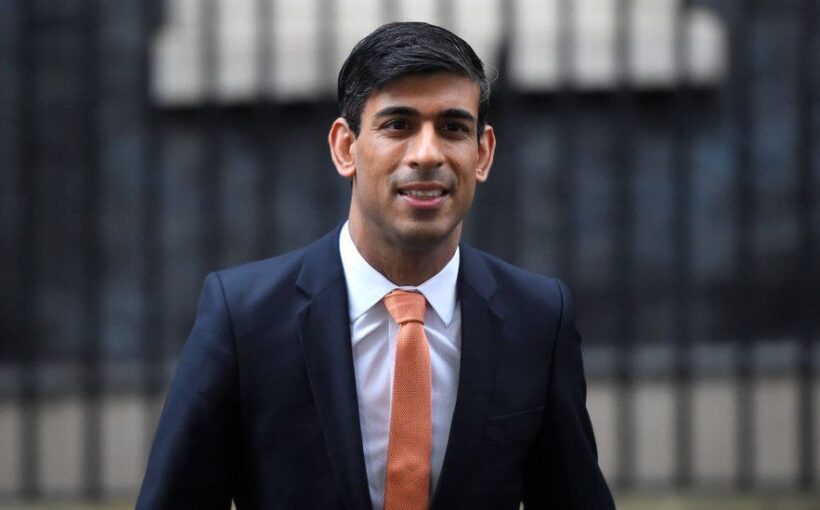BALI, Indonesia — Rishi Sunak has hinted he will abandon plans to declare China a “threat” to national security as part of a major review of British foreign policy.
Speaking to reporters traveling with him to the G20 summit in Bali, the British prime minister softened his language on Beijing and twice refused to back his predecessor Liz Truss’ plans to elevate China’s status to that of a “threat” in an upcoming refresh of the U.K. government’s foreign and defense priorities.
The original version of the U.K.’s integrated review, published last year, describes China only as a “systemic competitor.”
Asked whether he would be pushing ahead with Truss’ plan to harden the U.K.’s position, Sunak initially referred to China as a “systemic threat” before hastily correcting himself.
“My view on China is straightforward,” he said. “I think that China unequivocally poses a systemic threat — well, a systemic challenge — to our values and our interests, and is undoubtedly the biggest state-based threat to our economic security, let me put it that way. That’s how I think about China.”
Then he added: “But I also think that China is an indisputable fact of the global economy and we’re not going to be able to resolve shared global challenges like climate change, or public health, or indeed actually dealing with Russia and Ukraine, without having a dialogue with them.”
Upgrading China’s status to that of a “threat” would put Beijing on a par with Russia and have major implications for U.K. foreign policy in the region.
Instead Sunak’s words represent a softening of the stance he took during the Tory leadership contest in the summer, when he described China as “the largest threat to Britain and the world’s security and prosperity this century.”
His more ambivalent tone places him closer to Boris Johnson, who, as prime minister, stressed the importance of dialogue and trade with China.
Pressed a second time on whether he was dropping the commitment to reclassify China as a threat, Sunak said the position he had set out was “highly aligned with our allies” and their own security strategies.
“If you look at the U.S. national security strategy that was published just a couple of weeks ago, and if you look at how they describe their view of China and how to deal with it, I think you’ll find that it’s very similar to how I’ve just described it,” he said. “The Canadians, the Australians — their versions of that strategy all say similar things.”
He also refused to say the U.K. should send arms to Taiwan, as Truss controversially vowed to while she was foreign secretary. “We’re considering all these things as part of the refresh of the integrated review,” he said.
‘Cop-out’
Conservative MPs who are hawkish on China and campaigners against Beijing’s treatment of the Uyghur minority in Xinjiang reacted angrily to Sunak’s comments.
“What more evidence does [Sunak] need that they are threatening our very values and the way we live our lives?” asked ex-Tory leader Iain Duncan Smith, one of seven U.K. politicians sanctioned by China over criticism of Beijing.
“We’ve seen the assault [on a protester outside the Chinese consulate] in Manchester and ad hoc Chinese police stations trying to coerce Chinese citizens back into China by bullying them and threatening them.”
He added: “This is a cop-out. The saddest part of this is that President Xi Jinping will see this about-turn as a sign of weakness by the PM.”
Rahima Mahmut, U.K. director of the World Uyghur Congress, said: “I cannot find words for the disappointment. While our children are stolen from us and re-educated, our women sterilized, and products made through Uyghur slavery fill U.K. shelves, the prime minister can’t even bring himself to acknowledge the Chinese government for what it is: a clear and present danger to the U.K., and to my people.”
‘Outlier’
Some senior MPs suggested redesignating China’s status would have been more a PR stunt than a decisive measure.
Alicia Kearns, who chairs the House of Commons foreign affairs committee, said: “It’s too easy for governments to adopt performative [rather] than substantive approaches to the Chinese Communist Party.”
“Changing the designation of China would have rendered us an outlier amongst our Five Eyes partners,” Kearns said, referring to the Western intelligence grouping of which the U.K. is a member, “and risked distraction from developing a more strategic approach.”
But David Lammy, shadow foreign secretary for the opposition Labour Party, said Sunak’s comments “look like yet another screeching U-turn on the Conservatives’ approach to China and the U.K.’s national security.”
“We don’t need more hollow slogans, we need a consistent approach,” he said.
Source: Politico


